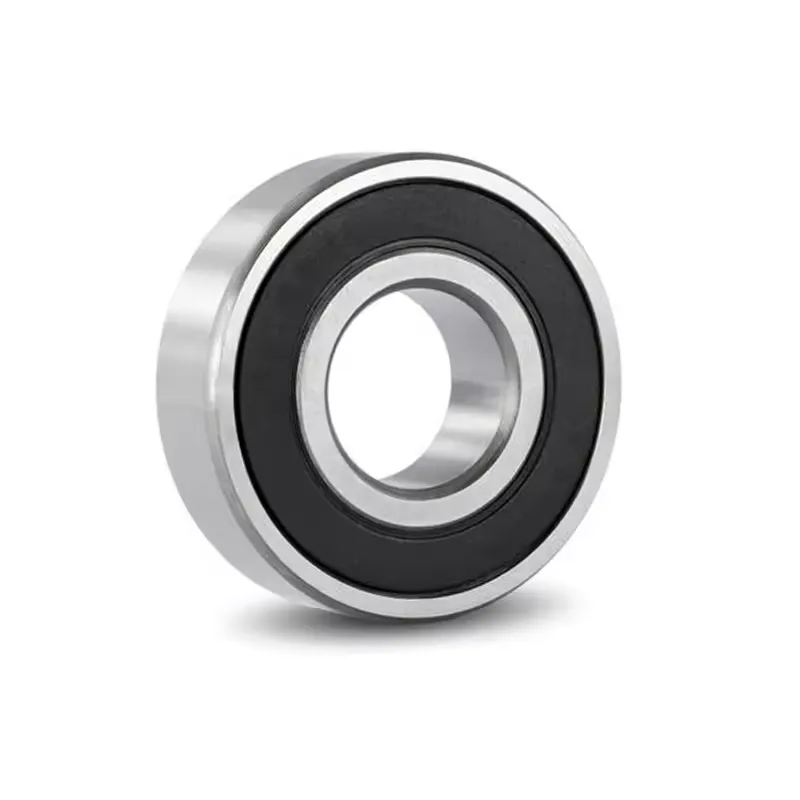Jul . 29, 2024 02:05 Back to list
Innovative Design for Custom Stepper Motor Bearings to Enhance Performance and Durability
Custom Stepper Motor Bearing A Key Component for Precision Engineering
Stepper motors are highly regarded in the realm of precision engineering, widely used in applications where accurate positioning is necessary. From CNC machines to robotics, these motors provide precise control over rotational movement. However, a stepper motor's performance is not solely reliant on its core mechanics; it also heavily depends on the quality and design of its associated components, particularly the bearings. Custom stepper motor bearings play a crucial role in optimizing motor performance, enhancing reliability, and minimizing wear and tear.
Understanding Stepper Motors
Stepper motors operate by dividing a full rotation into a series of discrete steps. This enables fine control of angular position, which is particularly important in applications such as 3D printing, where precision positioning is essential. Stepper motors can be unipolar or bipolar, with each type having its specific requirements for torque and speed. Regardless of the type, the efficiency and effectiveness of these motors are greatly influenced by the design and quality of their bearings.
The Importance of Bearings
Bearings are critical components that allow smooth rotational movement, reducing friction between moving parts. In stepper motors, bearings support the rotor and help maintain axial and radial alignment as the motor operates. High-quality bearings enable stepper motors to perform optimally by providing stability, reducing noise, and extending the lifespan of the motor by minimizing wear.
When it comes to stepper motors, the choice of bearings can greatly affect the motor's performance characteristics. Custom stepper motor bearings are designed to meet the specific requirements of various applications, including load capacity, speed, and environmental factors such as temperature and humidity.
Customization for Enhanced Performance
One of the key advantages of custom bearings is that they can be tailored to fit the unique specifications of a given stepper motor. This might include alterations in material composition, size, and lubrication methods. For example, in high-speed applications, bearing materials with low friction coefficients might be employed, while in environments with high temperatures, specialized heat-resistant materials could be used.
custom stepper motor bearing

Moreover, custom bearings allow for the optimization of load distribution, which can lead to enhanced performance under specific operational conditions. This is particularly important in precision applications where the bearings must endure varying loads without compromising rotational accuracy.
Benefits of Custom Stepper Motor Bearings
1. Improved Durability Custom bearings are often designed for specific applications, meaning they can withstand the unique stresses and demands of a particular stepper motor setup, ensuring longer service life.
2. Enhanced Precision By designing bearings that precisely match the motor's operating conditions, manufacturers can significantly improve the precision and repeatability of stepper motors, which is crucial in applications requiring accurate movement.
3. Noise Reduction High-quality custom bearings can help reduce operational noise, which is essential in applications where noise is a factor, such as in medical devices or laboratory equipment.
4. Increased Efficiency Custom bearings can help minimize friction and wear, translating to higher efficiency in the motor’s overall performance and potentially lower energy consumption.
Conclusion
The development of custom stepper motor bearings represents a significant advancement in precision engineering. By understanding the interplay between stepper motors and their bearings, engineers can prioritize the design and selection of bearings to enhance performance, reliability, and durability. As applications for stepper motors continue to evolve, the importance of customized bearings will undoubtedly grow, paving the way for more efficient and precise technologies across various industries.
Latest news
-
25MM 2 BOLT UCFLX05-14 Flange bearing unit( oval)
NewsMar.07,2025
-
4 bolt UCF 200 series Pillow block bearings
NewsMar.07,2025
-
25MM 2 BOLT UCFLX05-14 Flange bearing unit( oval)
NewsMar.07,2025
-
UCF216-50 4-Bolt Flange Housing Square Bearing
NewsMar.07,2025
-
25MM 2 BOLT UCFLX05-14 Flange bearing unit( oval)
NewsMar.07,2025
-
spherical roller bearing material exporter
NewsMar.07,2025





